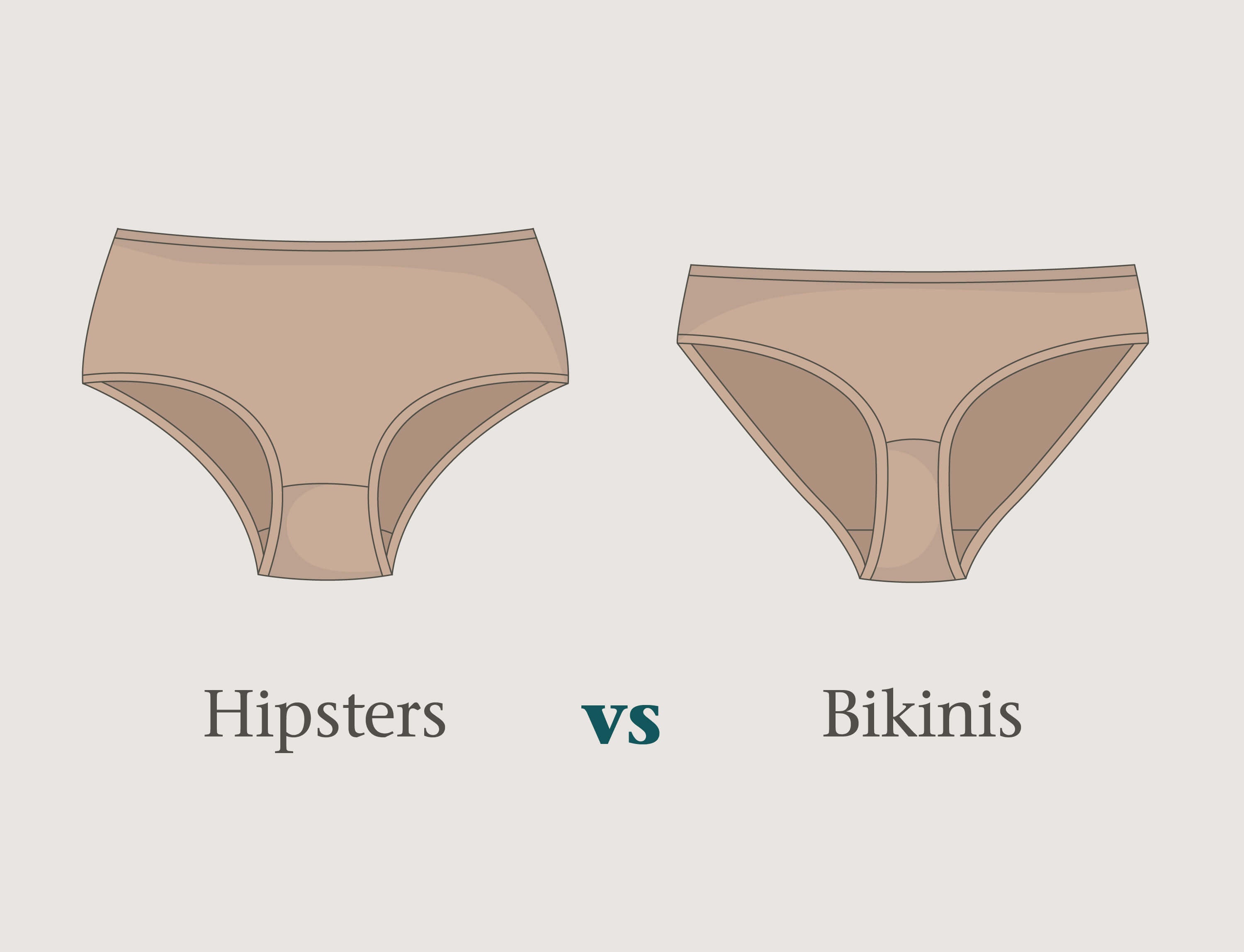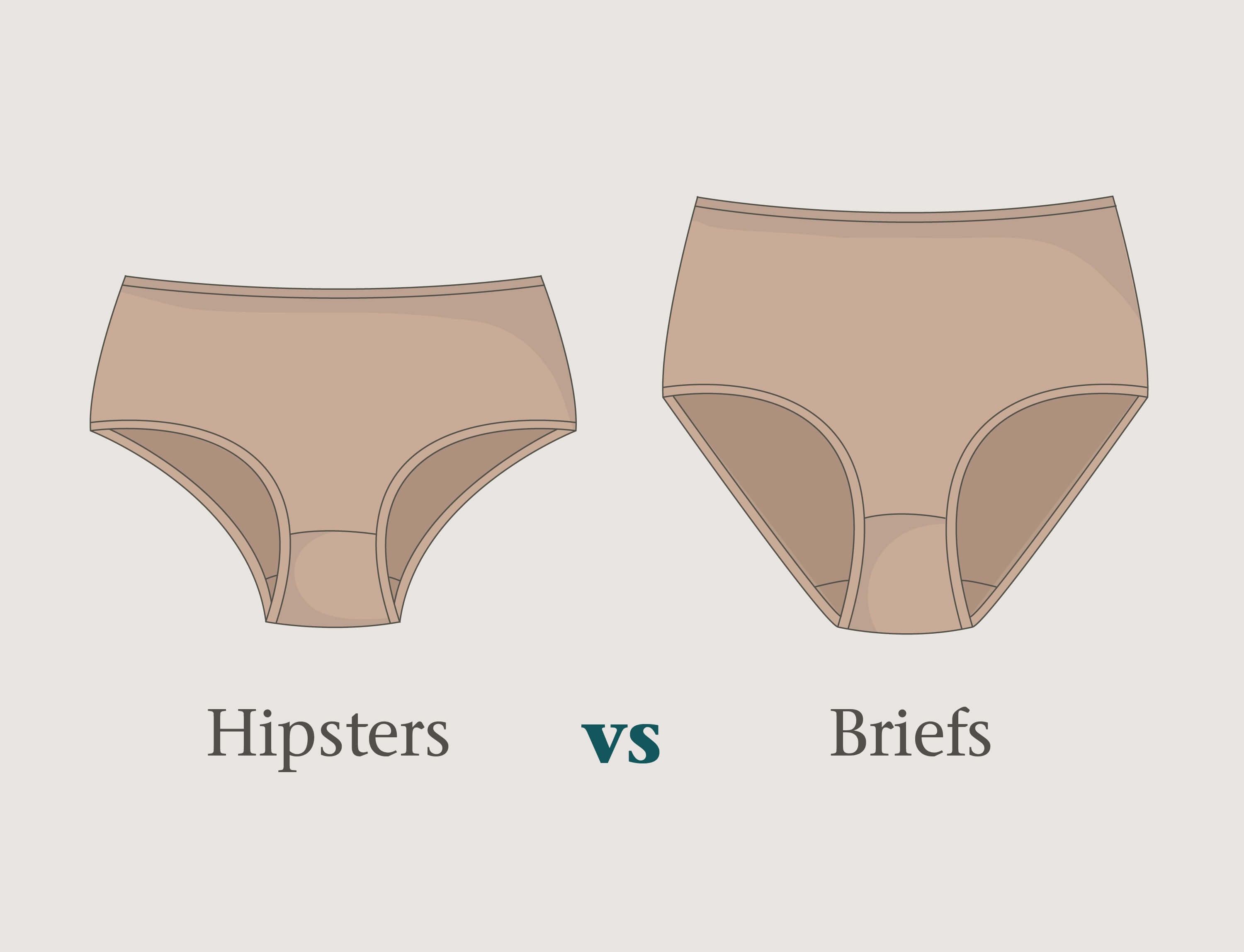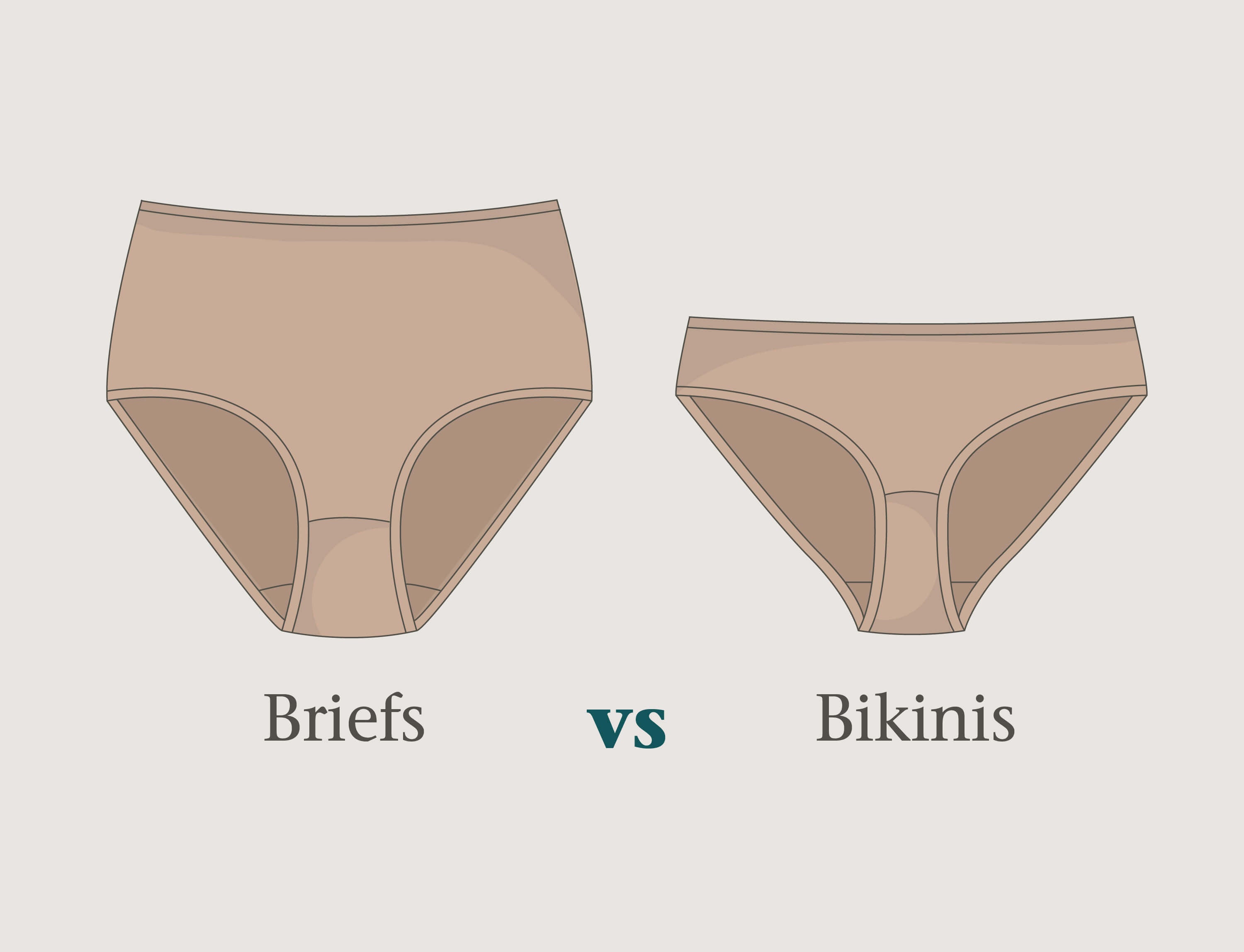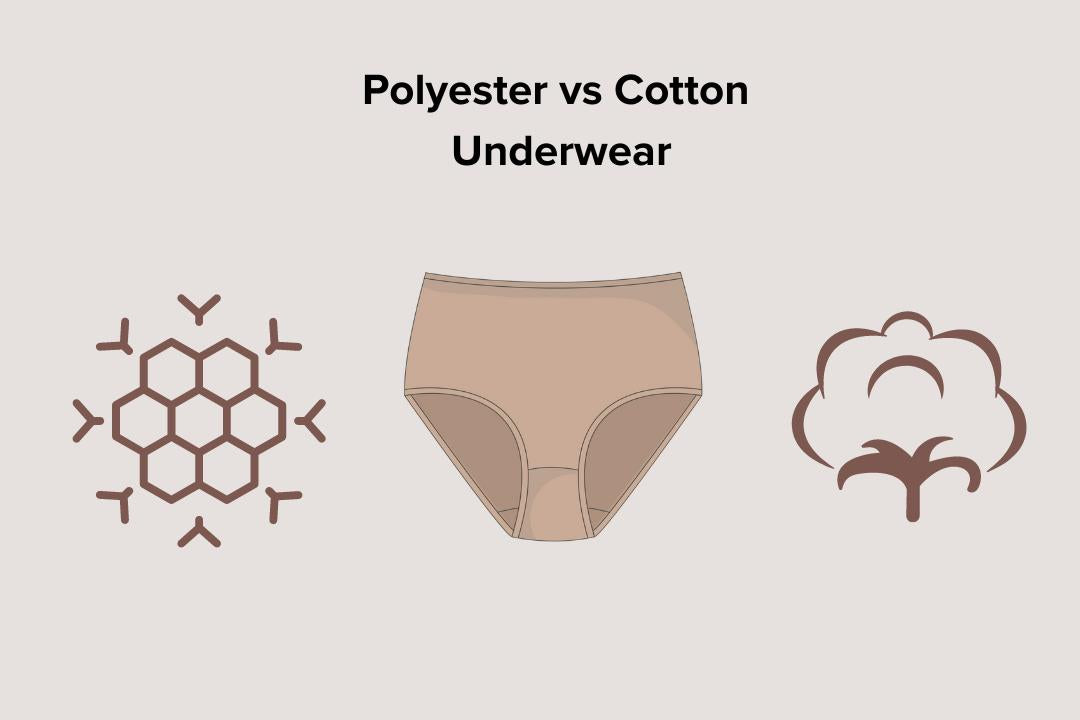
Polyester vs Cotton Underwear: Material Matters
Choosing the suitable material for your underwear is important not just for comfort but also for your health. We’ll break down the differences between two widely used fabrics: polyester vs cotton. Our clear and concise comparison will highlight the advantages and disadvantages of each, aiding you in choosing the fabric that best aligns with your personal needs and lifestyle preferences. Understanding these materials is essential whether you’re looking for long-lasting wear or the comfort of natural fibers.
Polyester Underwear Characteristics: Key Benefits
Is polyester underwear bad? Polyester underwear is made from a robust and synthetic fabric known for its durability. It starts as polyester fibers made from petroleum-based materials using a chemical process. These fibers are spun into yarn and then woven or knitted into fabric. The fabric is dyed, cut, and sewn into various underwear styles. While polyester is excellent for activewear because it dries quickly, it may not be the best choice for those with sensitive skin or environmental concerns because it's not as breathable or hypoallergenic as cotton.
Advantages of Polyester Underwear
- Moisture-Wicking Properties: Polyester is excellent at wicking moisture away from the body, making it a popular choice for athletes and those who lead an active lifestyle. This feature helps to reduce sweat accumulation and keeps you dry during physical activities.
- Quick-Drying: Unlike cotton, polyester dries very quickly. This is particularly beneficial if you wash and wear your underwear frequently or often in wet conditions.
- Polyester and Seamless Design: Polyester is also a preferred material for seamless underwear due to its ability to retain shape and stretch. Unlike cotton, polyester fibers offer the necessary flexibility and durability to create seamless designs that are smooth, comfortable, and invisible under clothing. Check out our detailed article 100% Seamless Organic Cotton Underwear Does Not Exist to learn more about the limitations and alternatives when it comes to seamless designs.
When comparing cotton vs synthetic underwear, despite the common belief that synthetic materials like polyester are ideal for workouts, this isn't always accurate compared to cotton. Cotton is an excellent choice for workout underwear.
Cotton Underwear Characteristics: Key Benefits
Cotton underwear is well-loved for its natural comfort and eco-friendliness. It starts as soft fluff around the seeds of the cotton plant. After being picked, this fluff is cleaned and spun into yarn. This yarn is then woven or knitted into the fabric that makes up our underwear. The fabric is dyed, cut, and sewn into various styles, each offering the comfort and breathability that make cotton a favorite.
Although, not all cotton is the same. There is difference also between organic cotton vs regular cotton. Organic cotton is grown without harmful pesticides and processed using sustainable methods, making it a healthier and more eco-friendly choice for your underwear.
So when looking for organic cotton underwear vs polyester, remember that cotton comes from renewable sources and breaks down naturally; it's a win-win for comfort and sustainability.
If you're after undies that feel good and do good, cotton is the perfect pick! For the best options, check out our 100% organic cotton underwear for women collection.
Advantages of Cotton Underwear
Cotton outshines polyester for several reasons. Let's explore why cotton is better than polyester:
- Comfort: Cotton is renowned for its softness and comfort. It feels gentle against the skin, making it ideal for everyday wear.
- Breathability: Cotton, with its natural fibers, promotes excellent air circulation, making it the most breathable underwear option. This feature helps maintain a cool and dry body under regular conditions, minimizing the chances of skin irritations and discomfort.
- Hypoallergenic Properties: Cotton is naturally hypoallergenic, making it a safe choice for those with sensitive skin or allergies. Compared to synthetic fabrics, it is less likely to cause skin reactions.
- Environmental Impact: While cotton requires significant resources to cultivate, it is biodegradable and comes from a renewable source. Efforts are continually being made to reduce the environmental footprint of cotton production, such as improving water efficiency and using fewer pesticides.
Cotton vs Polyester Underwear: Which to choose?
This comparison of cotton vs polyester underwear highlights that the choice largely depends on personal preferences, the intended use, and individual health considerations. Here's a breakdown of the key features to consider is polyester or cotton underwear better:
Health and Skin Sensitivity
- Cotton: Cotton is hypoallergenic and gentle, ideal for those with allergies or sensitive skin. It reduces the risk of irritation and discomfort.
- Polyester: Polyester can irritate sensitive skin because it's made with chemicals. This synthetic fabric may trigger allergies or skin reactions.
Breathability
- Cotton: Cotton’s natural fibers are highly breathable, promoting air circulation that helps regulate body temperature and reduce moisture buildup. This makes it especially suitable for warm climates and active lifestyles.
- Polyester: Polyester's breathability is limited; it tends to trap heat and moisture close to the body, which can lead to discomfort during exercise or in hot weather.
Style Variety
- Cotton: Cotton is versatile in fashion, and available in many colors and styles due to its ease of dyeing. It suits a wide range of tastes and preferences.
- Polyester: Polyester also offers a wide selection of styles and maintains color vibrancy for extended periods.
Eco-friendliness
- Cotton: Cotton is biodegradable and comes from renewable sources. However, traditional cotton farming demands considerable water and chemical use; in contrast, organic cotton farming employs methods that reduce environmental impacts, making it a more sustainable choice.
- Polyester: Polyester's main disadvantage is its environmental impact; it's derived from petroleum and is not biodegradable. The production process is energy-intensive and contributes to pollution.
Cost-effectiveness
- Cotton: Cotton tends to be more expensive due to its natural origins and the more complex processes involved in its production. However, its durability and comfort can provide long-term value.
- Polyester: Polyester is less expensive and, thus, more cost-effective. Its lower upfront cost appeals to budget-conscious consumers.
Durability and Maintenance
- Cotton: Cotton is naturally durable and comfortable but can lose shape and color after repeated washing. Proper care can extend its life.
- Polyester: Polyester excels in durability, maintaining its shape and color through many washes. It is resistant to shrinking and wrinkling, making it low maintenance.
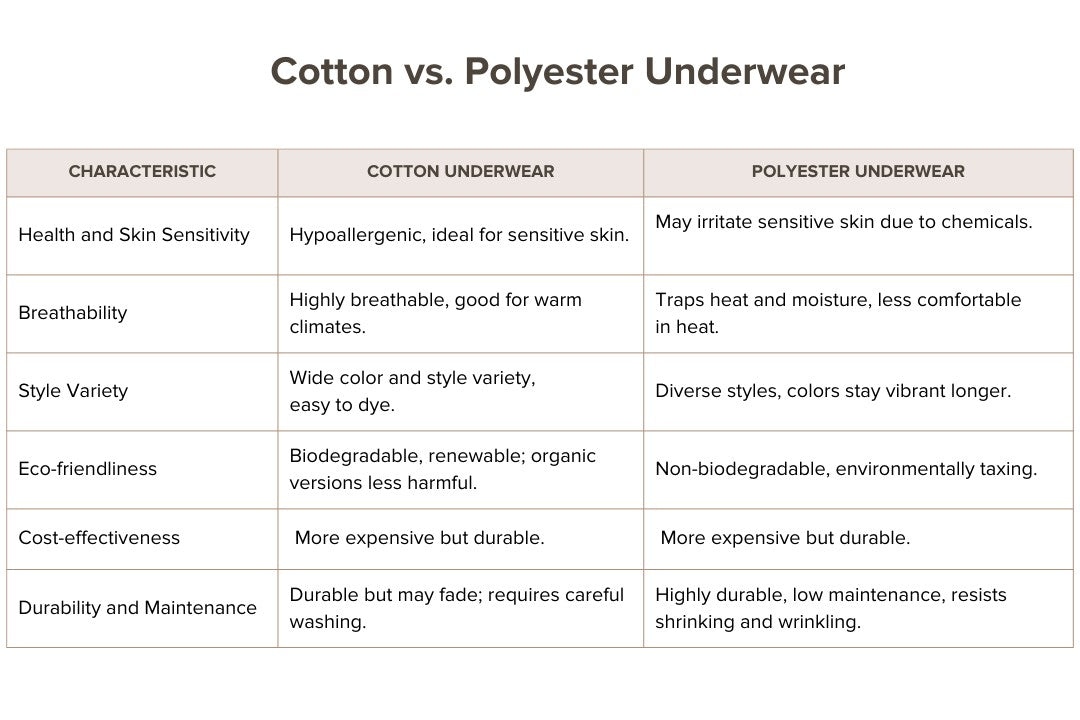
Why Choose Q for Quinn for Premium Underwear?
At Q for Quinn, we understand the importance of comfort and quality in everyday essentials like underwear. Our underwear is made from high-quality, organic cotton that is both soft on your skin and gentle on the environment. Our cotton underwear stands out for its exceptional features:
- GOTS-Certified: Each piece of our underwear is crafted from cotton that is not only soft and comfortable but also certified by the Global Organic Textile Standard (GOTS), ensuring it meets rigorous environmental and ethical standards.
- Hypoallergenic Features: Our underwear for sensitive skin remains hypoallergenic by adhering to natural materials and dyes. This ensures extra comfort and minimizes the risk of skin irritations, making it ideal for daily wear.
- Range of Styles: We take pride in our extensive selection of cotton underwear designed to meet our customers' varied preferences and needs. Explore our different types of underwear, each tailored to provide comfort, style, and a sustainable choice.
- Softness and Comfort: Cotton is renowned for its softness, providing a smooth and comfortable fit that feels great against the skin, making our underwear suitable for all-day wear.
Final Thoughts
Polyester vs cotton underwear is a common comparison. Cotton stands out for its comfort, breathability, and hypoallergenic properties, offering a cool, dry feel. Q for Quinn provides premium cotton underwear emphasizing comfort, sustainability, and quality for those seeking style and substance.







